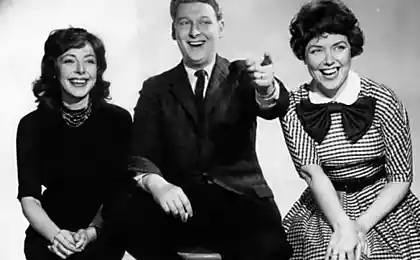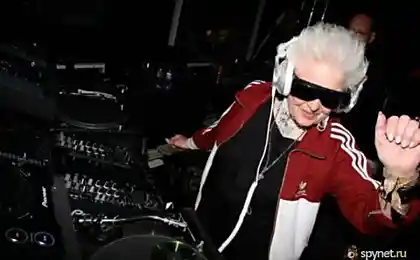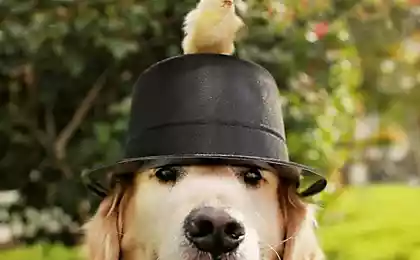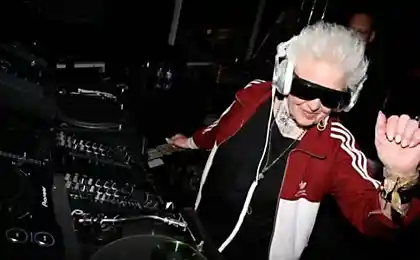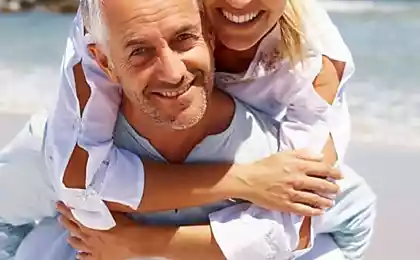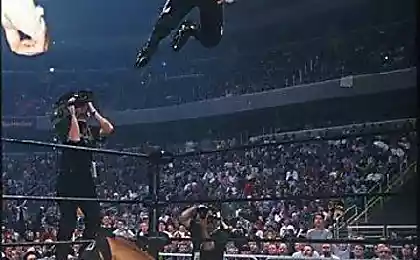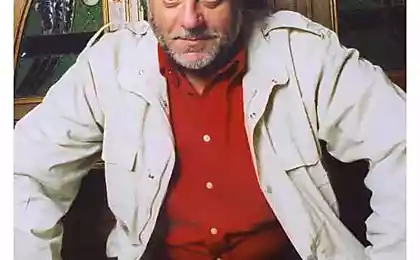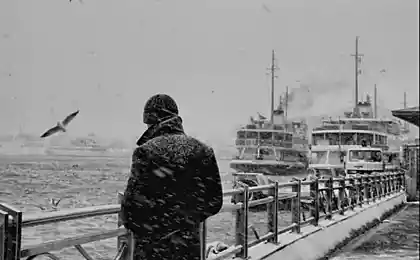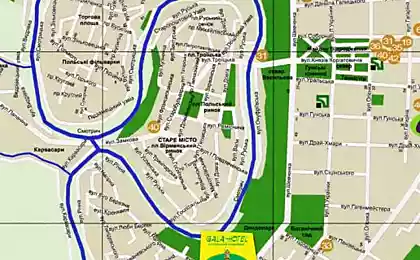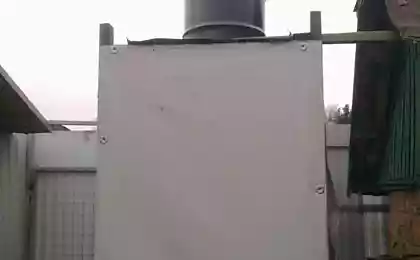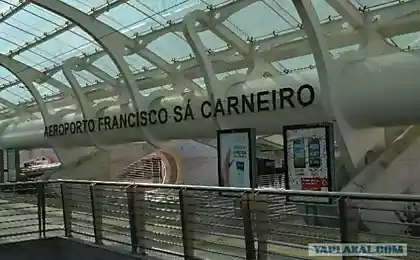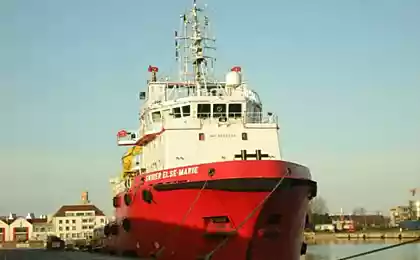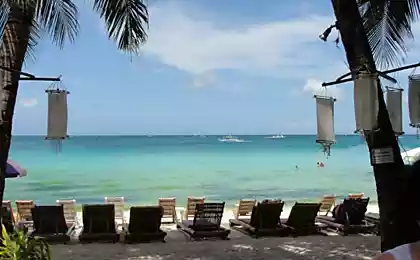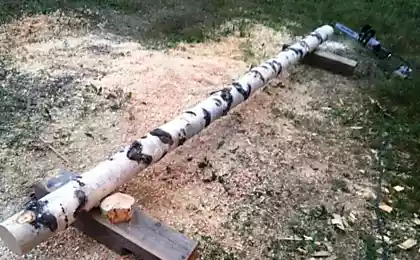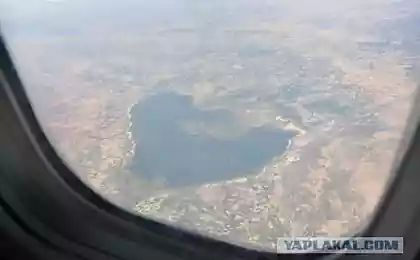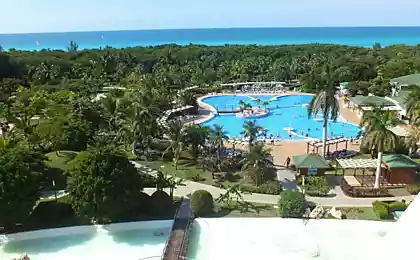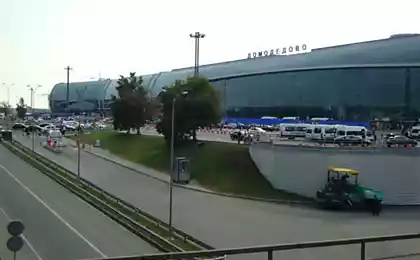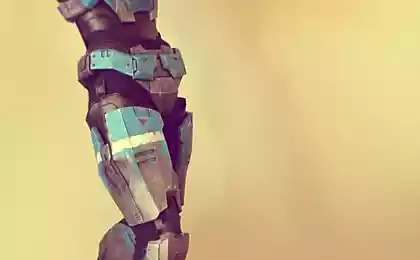937
Clowning inexperienced Puffin
Not only the appearance, but also the manner impasse look frank clowning. On the ground it moves, keeping the body almost vertically, funny fingering while paws. It looks even more ridiculous when landing: desperate flapping wings barely hold small tolstyachka in the air and wide paws already pulled forward and down, as if the chassis.
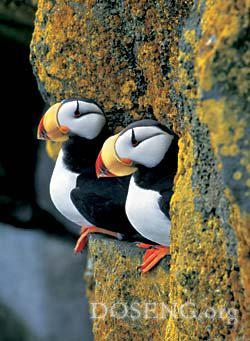
There are at impasse and do unique skill. Its main food - small sea fish: chickweed, capelin, herring and hake fry. The same and he feeds her chicks. But with each fish to the nest is not the incident, and pockets in the impasse is not ... He learned how to fish, not letting go of the beak is already caught. His rough tongue presses hard fish head to the sky, and the rest of the body hanging from the side of the beak. Clip so strong that even the dead deadlock does not leave with the loot. The usual rate - about a dozen fish in one go, but know a case where the beak of a bird hanging 62 fish.
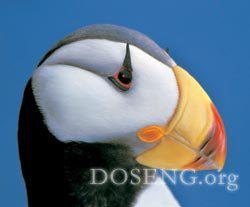
Today, serious fishing deadlocks lasts only the Faroe Islands, Iceland and Norway in some places (in particular the Lofoten Islands). And there it is rather fun than a serious source of food or income: meat deadlocks reeks of fish. There it is of course possible, but to enjoy it, you need to be Faroese fisherman. Naturally, in all the places where the hunt is still there, there are strict limitations: for example, it is forbidden to catch deadlock carrying a fish in its beak, as it means that he has a dependent chick. Thanks to whether this prohibition, or simply because of the thinly populated areas just in places where fishing is preserved, deadlocks are still many, and their number is not reduced.
In other countries, fishing is prohibited deadlocks or seasonally, or even non-existent. But came to the fore other threats. Like all the seabirds, puffins are suffering from water pollution, particularly oil. Meanwhile, offshore North and Norwegian Seas today one of the major oil regions of the world, and the North Atlantic as a whole - a field of intense and growing tanker traffic. Affect the impasse and pesticides, washable with fields and rivers are taken out to sea, and chronic overfishing of cod and hake fry which feed the birds. Even too intense tourism in some areas has become a serious threat if deadlocks too often disturb during the nesting season, they can opt out of breeding.

There are at impasse and do unique skill. Its main food - small sea fish: chickweed, capelin, herring and hake fry. The same and he feeds her chicks. But with each fish to the nest is not the incident, and pockets in the impasse is not ... He learned how to fish, not letting go of the beak is already caught. His rough tongue presses hard fish head to the sky, and the rest of the body hanging from the side of the beak. Clip so strong that even the dead deadlock does not leave with the loot. The usual rate - about a dozen fish in one go, but know a case where the beak of a bird hanging 62 fish.

Today, serious fishing deadlocks lasts only the Faroe Islands, Iceland and Norway in some places (in particular the Lofoten Islands). And there it is rather fun than a serious source of food or income: meat deadlocks reeks of fish. There it is of course possible, but to enjoy it, you need to be Faroese fisherman. Naturally, in all the places where the hunt is still there, there are strict limitations: for example, it is forbidden to catch deadlock carrying a fish in its beak, as it means that he has a dependent chick. Thanks to whether this prohibition, or simply because of the thinly populated areas just in places where fishing is preserved, deadlocks are still many, and their number is not reduced.
In other countries, fishing is prohibited deadlocks or seasonally, or even non-existent. But came to the fore other threats. Like all the seabirds, puffins are suffering from water pollution, particularly oil. Meanwhile, offshore North and Norwegian Seas today one of the major oil regions of the world, and the North Atlantic as a whole - a field of intense and growing tanker traffic. Affect the impasse and pesticides, washable with fields and rivers are taken out to sea, and chronic overfishing of cod and hake fry which feed the birds. Even too intense tourism in some areas has become a serious threat if deadlocks too often disturb during the nesting season, they can opt out of breeding.
